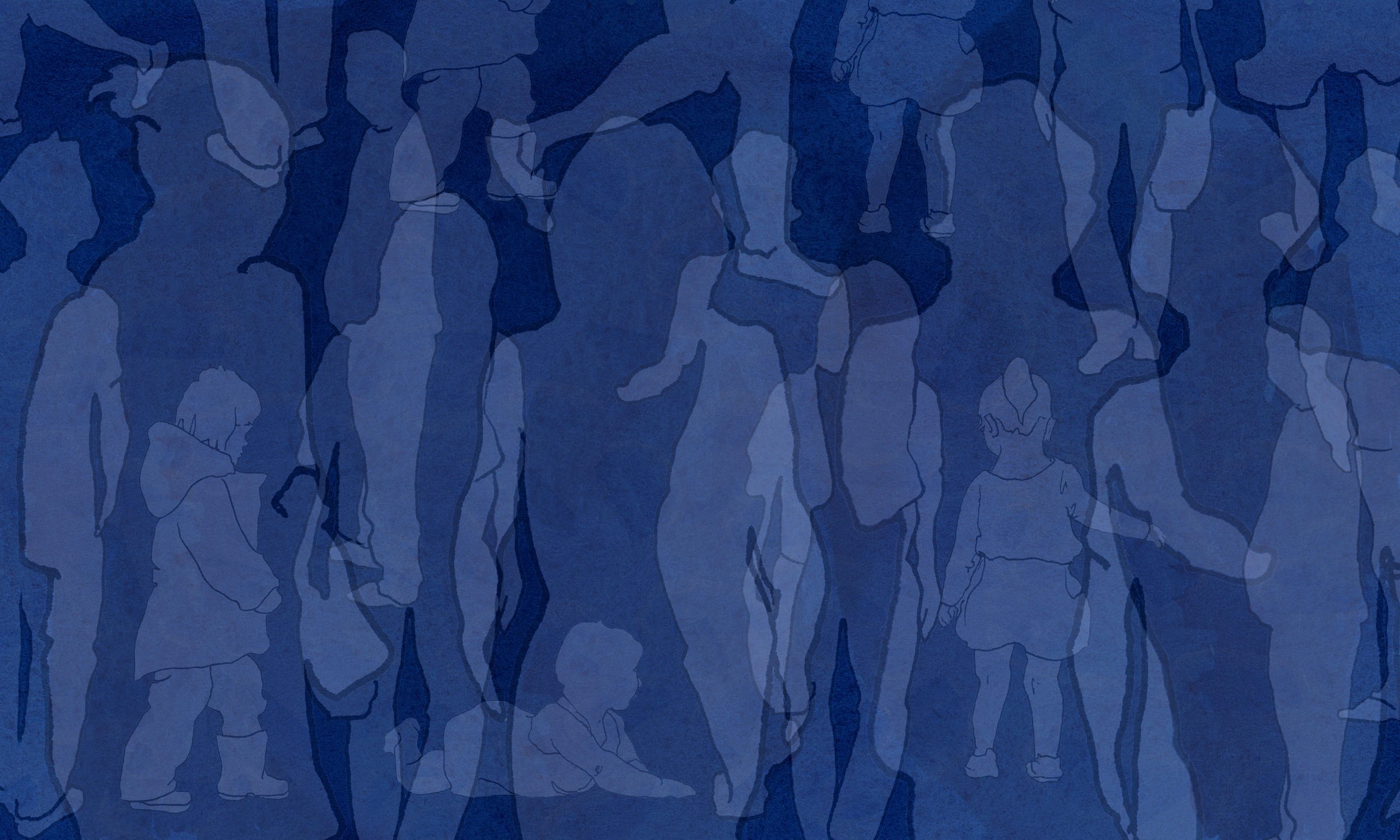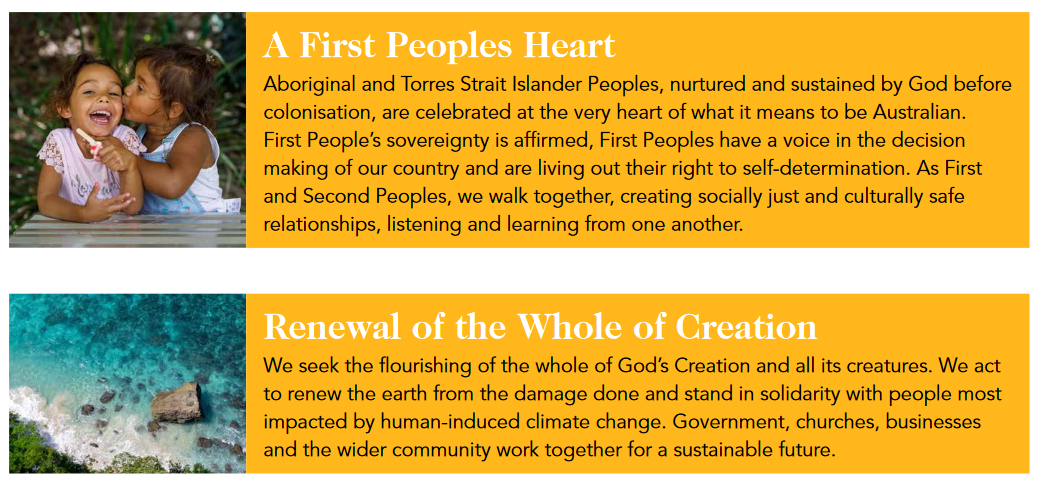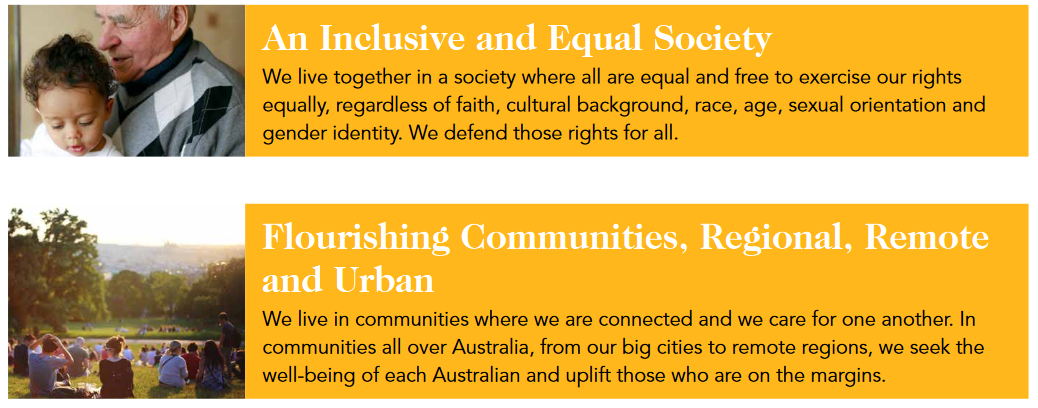Vision - why bother?
Vision: it’s one of those words that can sound a bit too happy-clappy, mung beans and rainbows to those of us who’d prefer to just get on with things.
And yet, everywhere we look we find evidence that vision matters. That the stories we tell each other about who we are and what we want, matter. That the frames we create and accept for what’s possible and what we’re aiming for deeply shape our expectations, attitudes and actions.
History, too, teaches us that vision matters.
Consider the Saturday morning on the 4th of March, 1933 when President Franklin D. Roosevelt was first sworn in as President of the United States and declared that, ‘where there is no vision, the people will perish.’ (This was also the famous, ‘the only thing we have to fear is fear itself’ speech.)
Those were dark, uncertain times: the Great Depression, the shadow of World War I, fascism and another World War looming large. “Only a foolish optimist can deny the dark realities of the moment,” he acknowledged gravely.
And yet FDR chose to spend his first minutes as President talking to people about vision and fear, in what became one of the most enduring speeches in modern history. He would go on to introduce the New Deal, which is still inspiring leaders today.
Fast forward almost a century, and we again face a time of uncertainty and fear. Once again, we are called to turn away from fear itself, and turn towards vision. And so one of our goals at Australia reMADE is to share stories and examples of people doing just that, in real and everyday ways.
We recently sat down with Mark Zirnsak, a Senior Social Justice Advocate with the Uniting Church of Australia (UCA) in Victoria and Tasmania and an early supporter of Australia reMADE. For the first time, the UCA has developed their own Vision for Australia. We asked Mark about the thinking that sparked the UCA’s new vision, how they wrote it, how they’re using it; and how people who share a common vision can continue to work together better for the world we want.
Here’s our conversation.
Vision - why bother?
Thanks for chatting with us today, and it’s great to see your beautiful vision proudly displayed in every church building, as well as online. Can I start by asking, what first prompted you to first get involved in a24 (now Australia reMADE)?
The purpose of the UCA vision.
I was quite excited by civil society getting together to do something collaborative. Unfortunately it doesn’t happen nearly as often as I would like it to!
I believe it was [Greenpeace CEO] David Ritter who was there in one of our early meetings.
He said something like, ‘we had the global financial crisis. If anything could show neoliberalism doesn’t work it should have been that, but at the end of the day there was no alternative put forward. So what happened? We just bailed out the people who caused it and everyone else had to carry on. There was no alternative vision articulated about where we could go.’
It made a lot of sense to me that we needed to fix that problem and have an alternative vision across civil society.
So where did the decision come from for the UCA to create its own vision?
I was quite excited by civil society getting together to do something collaborative. Unfortunately it doesn’t happen nearly as often as I would like it to!
It came out of the Australia reMADE process. I was saying in the Church that we have lots of statements and positions that all talk about the path to the kind of society we want, or specific reforms, but we have nothing that outlines a vision of what the endpoint is. I came to realise this is a gap we actually have inside the Church. I put it to our national office and the answer was that we should develop a vision for the society we want.
Describe the process you used to create your vision for the Uniting Church. Did you find it difficult?
We cheated a fair bit because we actually did start with the Australia reMADE document and built from that basis. That gave us a really good starting point to work from, and from there we got together with the social justice staff within the Church from across the country. We had a meeting, decided what should go into this doc, divvied it up and did our bits.
It wasn’t that difficult a process because Australia reMADE had done most of the groundwork! If we hadn’t had that as our starting point, it would have been a difficult process.
Key elements of the UCA vision.
Haha! In that case why not just use the Australia reMADE vision?
I would have leaned personally towards just adopting it was, but there was a feeling that for it to really work for our members it needed to be grounded in faith.
How has the Vision been received?
The feedback so far has all been very positive. People in the church have a bit of a culture of pre-election forums, where they get the candidates together and ask them a bunch of questions. It’s certainly been used for those, for people to put questions to their candidates.
There will be post-election analysis down the track to see how widely it was used and to solicit wider feedback.
But while the full 34-page document may need to be revised after the election, the two- page summary is written for longevity.
Key elements of the UCA vision.
What are your hopes for this vision and how it will be used inside the Church?
My hope is that the Vision will increasingly be used among our church members, including our social justice staff nationally across the board. I hope that we will continue to make it live and grow within the Church as a vision that we talk about and ground our work in.
That‘s my hope in terms of where we go with it. I don’t think there’s a magical way to do that, it’s a matter of us owning it.
The vision parallels Australia reMADE, but builds on it, adding a new sacred dimension grounded in the UCA values and beliefs. Do you think it’s important that we collectively work with, or help promote, visions aligned to our own more often?
I think it’s trying to pull each other into alignment as much as possible – so that we’re pulling together in the same direction. Our opponents very much know how to sing from the one song-sheet, and we’re pretty bad at it. Australia reMADE has already done a lot of good to get together in this space and build bridges between civil society groups.
While there’s perhaps some growing awareness of a ‘Christian left’, progressives are typically known for being more sceptical of organised religion and religious voices. How do you personally approach bridging this divide in your own work?
Key elements of the UCA vision.
From my perspective it’s always just been about having respect for each other. That respect allows religious and non-religious people to work together.
If your starting point is that religious people and groups don’t need to be offered even the most basic level of respect, there’s nowhere to go from there.
If you’re a religious group and you take the view that atheists are to be distanced or treated as ignorant or in need of saving, there’s not much of a basis for relationship. Likewise if you are a secular group who think all religion is evil and needs to be outlawed.
But as long as there’s respect – to give people permission not to have beliefs or to hold their faith – people can work together. There are some issues where we’re going to disagree.
Do you think there’s more scope for us to work together across issue groups, sectors and spaces – secular and sacred? What advice would you give?
I think we end up getting very caught up in our own areas. What we’ve tended to do is get very focused on the most immediate thing that relates to our own stakeholders and cause, and that means we don’t put effort into campaigns that have a deeper structural impact. Coalitions can be hard when members show up in name only and unless we address those structural things, there will be a limit to what we can do.
Recently I got involved with Professor Joseph Camilleri from La Trobe University through a conference he organised, Earth@Peace. He’s talking about how national governments today find their ability to make decisions on big issues is limited, because the global system stops them from being able to do that. At the same time I’m reading the Rise of the Outsiders by Steve Richards, who makes exactly the same point.
Left-leaning outsiders can win on campaigns like anti-austerity. Then they get into office and find they have to play by the existing systems and structures. This happened in Greece. It’s easy from the outside to say ‘we’re going to stand up and make our own decisions, be our own country,’ but the reality is harder. That’s another reason that civil society needs to come together, not just nationally but globally.
We need to create a better way and not be constrained by people imposing their will for the benefit of global capital – wealthy individuals who are able to punish governments for not doing what they want. We don’t tend to talk about the left-wing outsiders that have been successful in Europe. It’s not just right-wing populists who have gained traction. Left-wing groups say things that people want to hear, articulate what people want, but they don’t have a path to get there. The electorate then punishes them.
Are there international groups that you follow? How do you think we can begin to build stronger alliances beyond our own nation?
I’ve largely relied on others talking about those groups, including Australia reMADE. But I think that’s a really good question for all of us going forward.
A key element of the UCA vision.
What advice would you give to an organisation wanting to embark on this kind of process and be more overtly vision-led in their work?
Just know that being able to adopt a broader vision helps inspire people to connect with your organisation and where you want to go. That positivity will draw people in.
Even if Australia reMADE didn’t exist, this is stuff we need to do. We’re going to keep losing if we don’t offer meaningful alternatives.
Thank you so much Mark for your time and the work that you do.
If you’re considering bringing vision more into your own organisation, volunteer leadership, community or family life, then know that the very act of asking people to ‘vision out loud’ is powerful.
There’s a certain alchemy that happens, an energy that is shaken free, when we invite our people to talk about what we’re aiming for, the ‘best version of us’.
If you want to use the Australia reMADE vision, even as a starting point, visit our get involved page to download a print-friendly PDF you can put up on your office wall, in your home or community hall or school – wherever someone will let you! There are also reflection questions and conversation guides you can use to go deeper within your own organisations.
Far from being airy-fairy, vision has shown its mettle and worth in precisely the most trying of times. Being vision-led also helps us pull back from the barrage of endless tasks and more strategically channel our efforts and energies by asking ‘where do we want to end up?’ Developing a vision is a starting point, but it’s one that gives enough trust and inspiration to move into action more effectively and efficiently, with greater trust and passion.
We encourage you to consciously bring vision into your own work and world, and be sure to share your own story too.
LILIAN SPENCER
Lilian Spencer is a writer and communications advisor for mission-driven organisations. She helped craft the Australia reMADE Vision and now leads Australia reMADE’s ongoing communications strategy and engagement work.
Lily believes that the secret to change is to “focus your energy not on fighting the old, but on building the new.” (-Way of the Peaceful Warrior, Dan Millman)










